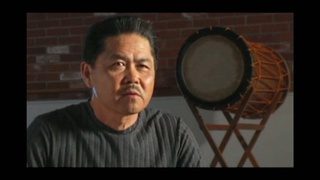Interviews
Government urged Japanese Canadians to go to Japan
There was a lot of discussion, and of course, at the time, there was continual pressure put on by the B.C. Security Commission to get people out of these camps, go east, or sign up to go to Japan. And to go back to Japan, they sort of put a little bait out there, they would pay everybody two hundred dollars plus the fact they would ship everything that they had out to Japan for them. And they, each individual would receive two hundred dollars. So this was a kind of a bait they put out to try and get them to sign up to go back to Japan. And, of course, majority of the people looked at that and said, "Why would I go -- " most of the younger people said, "Why? I'm not Japanese, I'm Canadian." And so they did get about, oh, eventually they got about, oh, seven or eight thousand people to sign up, and then about half of them said, no, they don't want to go after all.
Date: July 25 & 26, 2006
Location: Washington, US
Interviewer: Tom Ikeda
Contributed by: Denshō: The Japanese American Legacy Project.












